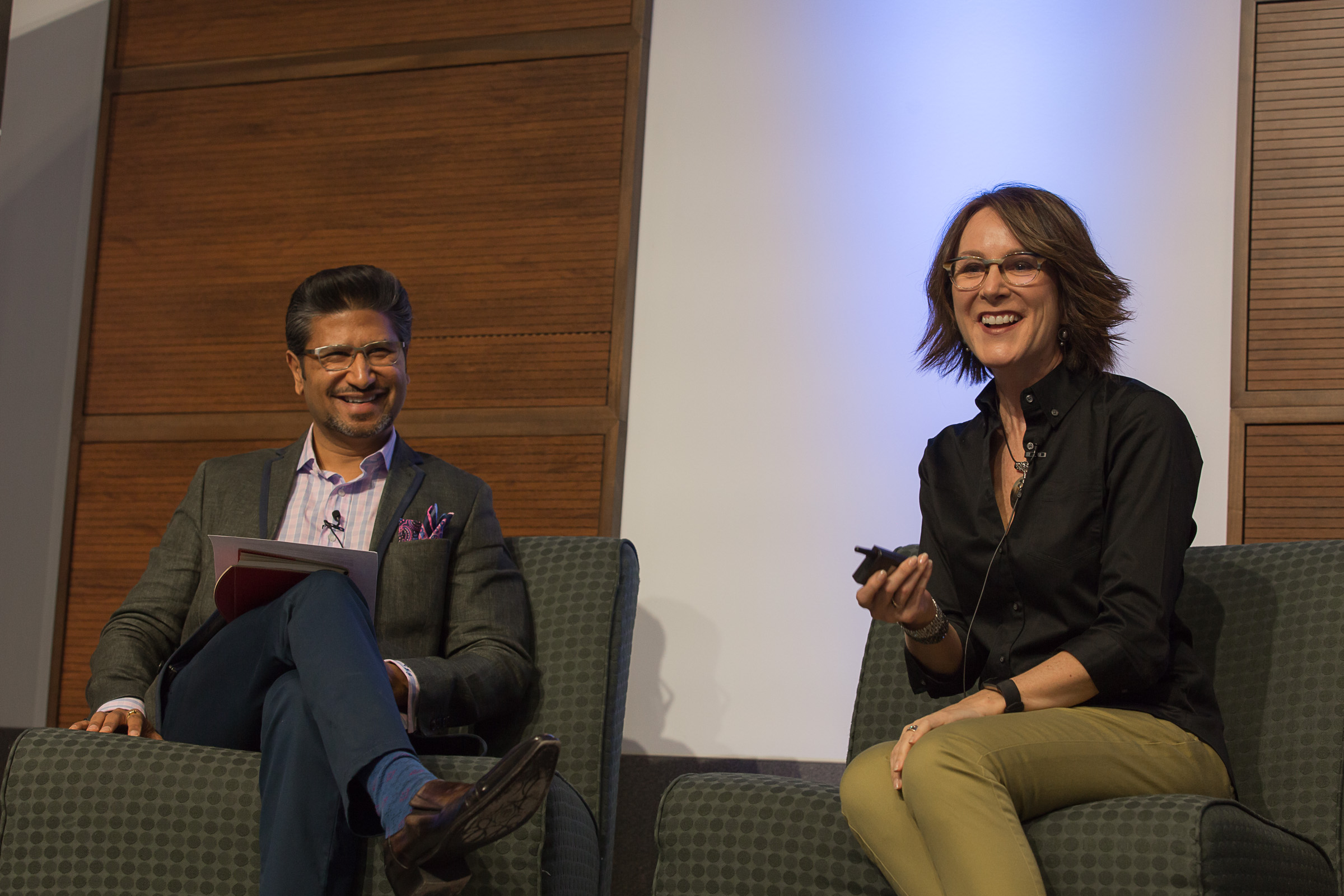Catherine Winder’s tricks for identifying IP within IP

The iVentures keynote and president of Skybound North talks shortening idea-generating timelines and finding hidden spinoff opportunities.
When creating content with cross-platform appeal, building a strong central brand that can sustain multiple platforms and identifying IP within IP will be crucial in finding hidden spinoff opportunities, Catherine Winder told delegates as Interactive Ontario’s annual iVentures event got underway in Toronto on Thursday.
The event’s keynote speaker, who is now with Vancouver-based Skybound North, has previously worked at George Lucas’ LucasFilm, where she took the live-action IP associated with Star Wars into the animated space with the TV series Star Wars: The Clone Wars (2008). As well, Winder was part of the production team that adapted the Angry Birds mobile app for the big screen. Winder is also the former president of Vancouver’s Rainmaker.
L.A.-based multimedia entertainment company Skybound, which opened up a Vancouver office a year ago, typically looks to spin its various properties (which includes The Walking Dead franchise) into six categories: film and TV, live event, online programming and AR/VR, interactive gaming, comics and merchandise. In most cases, Winder said she aims to have one or at most two, of these categories anchoring the property, with the others built out around it.
Using the example of The Angry Birds Movie, Winder said the producers adapted the project from the game, even while the popularity in the mobile app was beginning to dwindle. “The game had taken off at first, but it did slow down, as many of them do. But as it was slowing down, we were transforming the brand from these round bouncing balls into these dimensionalized characters who could speak, walk, talk, sing, dance, and the look of the characters changed and so all the products began to change. It gave [the property] legs,” she said. The film went on to take around $450 million worldwide, with the budget coming in around $93 million.
Finding IP within IP was also an area that Winder pointed to as something potentially fruitful for producers and creators looking to create enduring brands. In the case of The Angry Birds Movie, Winder said the producers had noticed during audience test screenings that a scene in the film involving a group of small blue hatchlings would invariably get a great reaction. While these characters were not a large part of the main film, the team used that insight to produce a short Christmas-themed piece of content featuring the hatchlings singing carols. The traction gained from that ultimately lead to the animation team creating a short TV series (Angry Bird Blues) based solely on those characters.
Now, said Winder, Skybound is looking to take the idea of exploring the viability of characters a step further. The company recently invested in a startup platform called Toonstar, which Winder said will allow Skybound to launch characters into the market on a short-turnaround basis. The app allows users to customize cartoon characters and then animate them using their own facial expressions, allowing kids to “talk” with their favourite characters. Once built out fully, the platform will allow Skybound to create a 45-minute interactive chat show that children can watch and interact with.
While the production value will not be as slick as a traditional series, Winder said the content created through Toonstar will allow the company to test characters with audiences to see what resonates, which will provide insight when deciding which characters and stories to place its resources behind and which stories to drop as a result of audience indifference. In turn, this will help drastically reduce the lengthy production time cycle, she said.
“The challenge around animated content traditionally is that you find a property, figure out what it looks like, you develop it, you make a deal, then you’ve got to sell it, then you produce it, and then you finally get out to an audience. If you’re lucky that’s two and a half years,” she said. “We’re going to try to disrupt that [traditional animation] model.”
Picture: Vikas Gupta (left), Catherine Winder (right)

 The definitive CDN broadcast and production resource.
The definitive CDN broadcast and production resource.










